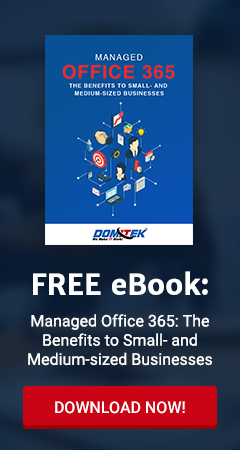Email is one of the best things the internet has given us. We use it to sign up for websites, apply for jobs, make payments, get in touch with friends and family, and many more. However, your email is also one of the platforms hackers can exploit to steal information or launch malware attacks.
Distributed spam distraction hides illegal activities
As annoying as spam email is, it’s usually pretty harmless. But hackers have been using a method called distributed spam distraction (DSD) where spam email is used to carry out illegal activities. Learn more about DSD and how you can safeguard your systems against it.
Your password may not be secure — update it now
The National Institute of Standards and Technology (NIST) once said that a good password consisted of three things: upper- and lowercase letter, numbers, and symbols. However, the NIST recently reversed its stance on good passwords. Here’s why and what they are now recommending.
Fileless malware: The invisible threat
Scanning the files you download is not enough to detect malware these days. Hackers have found a clever way to get around antivirus and anti-malware software by using fileless malware. Since this malware is not as visible as traditional malware, it can infect your entire infrastructure without you even knowing.
Should you monitor your employees’ online activities?
To monitor or not to monitor — that is the question. Employee monitoring is a touchy subject. If you’ve ever considered it, then you may ask yourself if it is a good idea for an employer to check on their staff’s online activities. Below are the pros and cons of employee monitoring, and some helpful […]
Watch out for this Android malware
Security researchers have discovered a new Android malware called DEFENSOR ID that snuck its way into the Google Play Store. Forensic analysis shows that the malware takes advantage of an Android device’s Accessibility Services to infiltrate the system and cause damage without being detected.
How to protect your business printers from hackers
Organizations spend resources on keeping their technology and devices secure, but they often overlook one crucial piece of hardware: printers. Printers, just like computers and Wi-Fi networks, can be an entry point for hackers and a gateway to your business’s sensitive information.
Here’s what to look for when buying antivirus software
Because of the global pandemic, work from home is now a necessity. This has increased the potential entry points for cybercriminals to infiltrate your network. Now more than ever, businesses need better cybersecurity protection. That’s why it’s important to choose the right antivirus software for your needs.
How to work from home securely
Encouraging staff to work from home is extremely vital in the midst of the COVID-19 outbreak. By minimizing social interactions and contact risks, you can reduce the spread of the virus. But be warned. Transitioning from a fully managed business environment to a home office can leave you vulnerable to cyberattacks and online scams.
Why autocomplete passwords are risky
Many people use auto-fill passwords for their convenience. What you might not know is that hackers and advertisers can use them to get access to websites and other applications and gather sensitive information. Learn more about the risks of using autocomplete passwords.

